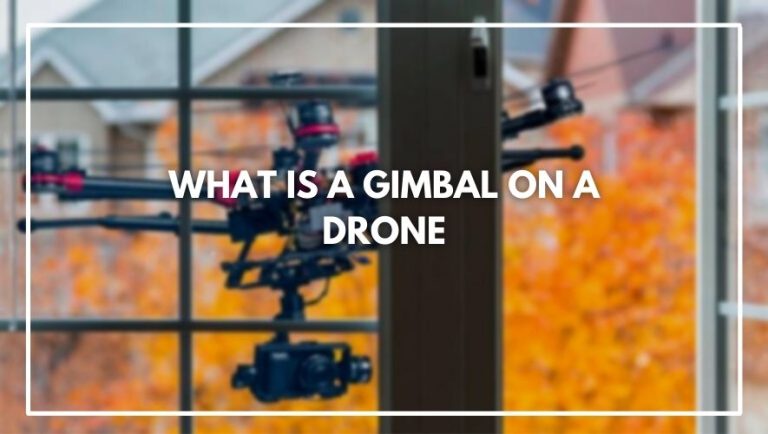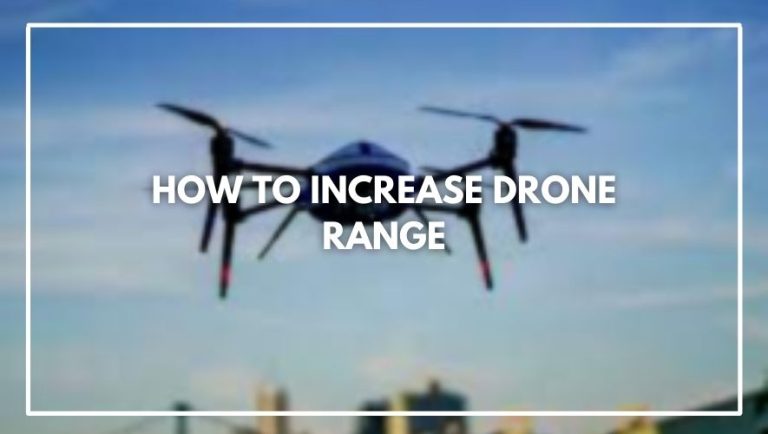Drone jammers, devices that interfere with the operation of drones, raise important legal questions about the balance between individual and public interests. The legality of drone jammers varies by country and jurisdiction, with some countries banning them outright and others allowing their use under specific circumstances.
Are Drone Jammers Legal? It depends on the country and jurisdiction. In the US, for example, the use of drone jammers by civilians is illegal and punishable by fines, while the government and law enforcement agencies may use them under certain circumstances. It’s important to check local laws and regulations before using a drone jammer.
In this blog post, we will examine the current legal landscape surrounding drone jammers, including their pros and cons, the regulations and laws that govern their use, and the potential consequences of using them without proper authorization.
The Pros And Cons Of Drone Jammers

The use of drone jammers has both advantages and disadvantages.
On the pro side, jammers can prevent drones from interfering with sensitive areas or facilities and protect privacy. They can also prevent dangerous or malicious drones from causing harm.
On the con side, the use of jammers can interfere with other important radio signals and cause safety risks. They can also be illegal in many jurisdictions and result in fines or other penalties.
Jammers may not be effective against all types of drones and can quickly become obsolete as drone technology evolves.
Advantages Of Drone Jammers
Here are some of the advantages of drone jammers:
- Security: Drone jammers can provide a secure environment by preventing unauthorized drones from flying over sensitive areas such as prisons, government buildings, and military bases.
- Privacy: Drone jammers can protect personal privacy by preventing drones from capturing images or videos of individuals or their property without permission.
- Crowd Safety: Drone jammers can prevent drones from interfering with public gatherings or events, ensuring the safety of the attendees.
- Protection of Wildlife: Drone jammers can also be used to protect wildlife and their habitats from drones that may disturb or harm the animals.
- Easy to Use: Drone jammers are relatively easy to use and can be operated by non-technical personnel.
- Cost-Effective: Drone jammers are an affordable alternative to more complex security measures and can be deployed quickly and easily.
Disadvantages Of Drone Jammers
On the other hand, there are several advantages of drone jammers too:
Legal Implications: The use of drone jammers may violate federal laws, such as the Federal Aviation Administration (FAA) regulations, which prohibit the disruption of radio communications.
Interference with Emergency Services: Drone jammers can interfere with the communication between emergency response teams and their drones, compromising their ability to effectively respond to emergencies.
Limitations: Drone jammers may not be effective against all types of drones, and their range and effectiveness can be limited by physical obstructions and atmospheric conditions.
False Alarms: Drone jammers can sometimes trigger false alarms and ground authorized drones, leading to confusion and potential safety issues.
Limitation of Other Devices: Drone jammers can also interfere with other radio-controlled devices, such as remote-controlled toys and vehicles, causing inconvenience and potential harm.
Ethics: The use of drone jammers raises ethical questions, as it can be seen as an infringement of personal privacy and freedom of expression.
Legal Regulations And Laws Governing Drone Jammers

The legal regulations and laws governing drone jammers vary by country and jurisdiction. In the United States, the Federal Communications Commission (FCC) prohibits the use of jammers as they interfere with authorized radio communications. In Europe, the use of jammers is restricted by CEPT.
Other countries may have their own laws and regulations regarding drone jammers. It’s important to research and understand the laws in your specific area before using a drone jammer as the use of jammers can result in fines, imprisonment, or other penalties.
National Regulations
The legality of drone jammers varies from country to country and region to region. In general, the use of drone jammers is regulated by national aviation authorities and the relevant laws regarding radio frequency use.
In the United States, the Federal Communications Commission (FCC) regulates the use of radio frequency devices, including drone jammers. The use of drone jammers is generally prohibited in the US, except in certain situations where they are authorized by the FAA for use by government agencies.
In the European Union, the use of drone jammers is regulated by the European Aviation Safety Agency (EASA) and the relevant national aviation authorities. The use of drone jammers is generally prohibited in the EU, except in specific circumstances where they are authorized for use by government agencies.
In other countries, the use of drone jammers may be restricted or outright banned by national aviation authorities. It is important to check with the relevant authorities before using a drone jammer, as the penalties for violating regulations can be severe.
The legal regulation of drone jammers is a complex and evolving area, and it is important to stay informed of the latest developments and regulations in your jurisdiction.
Local Regulations
The legality of drone jammers can vary greatly depending on local laws and regulations. In some countries, the use of drone jammers may be fully legal, while in others it may be heavily restricted or entirely illegal.
It is important to check and understand the local laws and regulations governing drone use and interference in your jurisdiction before using a drone jammer. Failure to comply with local laws and regulations can result in significant fines and legal consequences.
The use of drone jammers may interfere with emergency communications and compromise public safety, and as such, their use is often regulated and restricted. Before considering the use of a drone jammer, it is advisable to consult with local authorities to ensure that its use is in compliance with all applicable laws and regulations.
What Does The Faa Say About Drone Jammers?
The Federal Aviation Administration (FAA) in the United States has stated that it is illegal to use drone jammers as they interfere with authorized communications and can pose a threat to aviation safety. According to FAA regulations, any person who uses a device to intentionally interfere with the operation of a civil aircraft can be subject to fines, imprisonment, or both.
The FAA also recommends that individuals who observe potentially malicious drone activity report it to local law enforcement and not attempt to disable the drone with a jammer or other means.
Consequences Of Using Drone Jammers Without Authorization
The consequences of using drone jammers without authorization can be severe. In the United States, the Federal Communications Commission (FCC) enforces strict penalties for the unauthorized use of jammers, which can include fines of up to $48,000 per violation, imprisonment for up to one year, or both.
Drone jammers are illegal in most countries without proper authorization from the government. The use of drone jammers can interfere with authorized communications and pose a threat to public safety, which is why they are regulated.
Consequences for using drone jammers without authorization can vary, but typically include fines, imprisonment, or both. The severity of the consequences depends on the jurisdiction and the specific circumstances of the case.
Criminal Charges
Using drone jammers without proper authorization can result in criminal charges, including fines and imprisonment.
In the United States, the Federal Communications Commission (FCC) regulates the use of radio frequency devices, including drone jammers, and violation of these regulations can result in penalties of up to $48,000 for each violation or each day of a continuing violation, and up to one year imprisonment.
Other countries may have similar regulations and penalties for unauthorized use of drone jammers.
Seizure Of Equipment
Using drone jammers without proper authorization can result in seizure of the equipment by law enforcement agencies. In addition to fines and criminal charges, unauthorized use of drone jammers can also result in confiscation of the device by government agencies, who may consider it to be illegal contraband.
This can be the case in many countries that regulate the use of radio frequency devices and have laws specifically prohibiting the use of drone jammers without proper authorization.
Conclusion
The legality of drone jammers is highly debated and varies globally. In some countries, it is illegal to use jammers without proper authorization. Before using a drone jammer, it’s important to check local laws to avoid potential penalties.
The legality of drone jammers varies by country and jurisdiction. In the United States, the Federal Communications Commission (FCC) prohibits the use of jammers as they interfere with authorized radio communications.
In other countries, the use of jammers may be allowed under certain conditions or may be completely prohibited. It’s important to research and understand the laws in your specific area before using a drone jammer. The use of jammers can pose a safety risk to other devices that rely on radio signals, such as cell phones and GPS.
Frequently Asked Questions (are Drone Jammers Legal)
Can You Get A Drone Blocker?
Yes, you can get a drone blocker, also known as a drone jammer or drone jamming device. These devices emit signals that interfere with a drone’s communication and navigation, effectively blocking its control by the operator. However, use of such devices may be restricted by local laws and regulations.
What Is The Range Of A Drone Jammer?
The range of a drone jammer depends on the specific device and its frequency. Generally, a drone jammer can range from a few hundred meters to several kilometers, depending on the power output and antenna. However, the effective range can also be impacted by obstacles and interference from other electronic devices.
It’s important to research and understand the capabilities of a drone jammer before purchasing, and to use it in compliance with all local laws and regulations.
Can Military Drones Be Jammed?
Yes, military drones can be jammed, as they are susceptible to the same communication and navigation interference as civilian drones. However, it is important to note that military drones may have additional built-in countermeasures and more advanced technology, making them less vulnerable to jamming.
The use of drone jammers by unauthorized individuals can be illegal and carry severe penalties, especially when it comes to military-grade equipment. It’s essential to research and understand all laws and regulations before attempting to jam any drone.
Are Drone Jammers Legal In Uk?
The UK government has placed strict regulations on the use of drone jammers. Possession or use of such devices without proper authorization is illegal, in order to prevent potential harm to other electronic equipment and ensure the safety of the public and national security.





